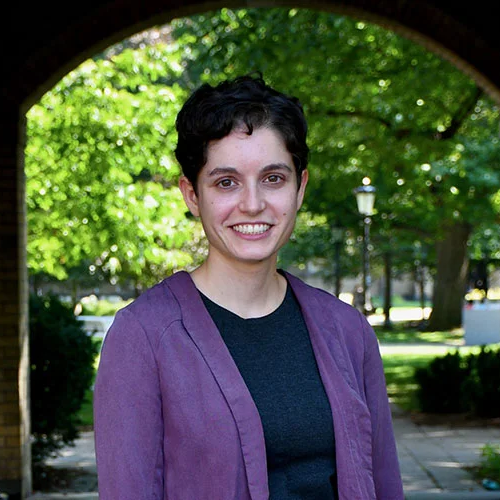Maya Fishbach

Maya Fishbach
2023-2024 Polanyi Prize in Physics
Through pioneering research utilizing gravitational-wave data from extreme cosmic events, such as collisions between massive black holes and neutron stars, Dr. Maya Fishbach, Assistant Professor at the Canadian Institute for Theoretical Astrophysics, University of Toronto, is working to not only enhance our understanding of the universe’s most extreme objects but to unravel their origins and contexts, with profound implications for cosmology.
When the Advanced Laser Interferometer Gravitational-Wave Observatory (Advanced LIGO) came online in 2015, it detected collisions between massive black holes, producing gravitational waves that travel billions of light years. These waves reveal information about black holes and neutron stars, which are among the universe’s most extreme objects.
Dr. Fishbach has been a leader in the field, extracting insights from these events, such as the masses, spins, and distances of black holes and neutron stars. She plans to continue this research and take advantage of the increasing number of gravitational-wave events. Her approach combines gravitational-wave data with theoretical models and multi-messenger observations, aiming to piece together the origins and contexts of black holes and neutron stars.
